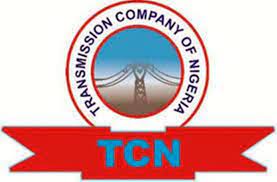The presidential assent to the Institute of Mortgage Brokers and Lenders of Nigeria (IMBLN) Act couldn’t have come at a better time considering that it was gradually becoming an all comers’ affairs. With the Act in place, analysts say a semblance of stability has been brought into the industry. BENJAMIN UMTEME writes.
Signed into law by President Muhammadu Buhari on 6th December 2022, and gazetted in 2023, after it was passed by both chambers of the National Assembly, the Institute of Mortgage Brokers and Lenders Act has been in the works since 2004 when it was incorporated under CAP 59. With the IMBLN Act in place, there is now a regulatory body for all Mortgage professionals and Real Estate Practices in Nigeria.
Mandate
Part of the mandate of the Institute has to do with training, certification, and licensing of all industry professionals ensuring that the competence and conduct of practice of all Mortgage professionals and Real Estate practitioners in Nigeria are of a sufficiently high standard to ensure professionalism in the industry.
According to the Act, the Institute has been vested with the power to: determine the standards of knowledge and skills to be attained by persons seeking to become members of the profession and reviewing such standards as may be required.
Also, the body’s mandate also includes the promotion of research and development of curricula of training of mortgage brokers, mortgage lenders, real estate brokers, and real estate agents; provide consultancy services in appropriate cases; arrange conferences, seminars, symposia and meetings; set prescribed rules and regulations; and exercise the powers conferred on it, and perform the duties imposed upon the Board by the provisions of the Act.
In need of salvation
Most Nigerians outside the financial system who have interest in the country’s mortgage sector have always heard that the sector’s slow growth finds an explanation in the inaccessibility and unaffordability of mortgage loans due to high cost of funds reflected in high interest rate, and demand for high equity contribution from borrowers by lenders.
But there are more to the causes of the slow growth of this sector which are almost always not talked about. Essentially, little or no note is taken of these other contributors to this slow growth among which are the huge stress which mortgage lenders pile on borrowers and the often non-existent partnerships which some of the mortgage lenders deceive home seekers into believing that they have with developers, giving the borrowers baseless hope and false impression that they are just a few steps away from home ownership.
A look at the country’s Mortgage industry would instantly reveal a sector in need of salvation, and the Act, is the salvation needed to bring the much needed sanity to a critical sector of the nation’s economy.
Analysts say the real estate sector is a fragile and very vital part of Nigeria’s economy. However, before the establishment of the act, the sector was without regulations guiding its practice, it was as the spirit leads. Therefore, there is a need to coordinate the affairs of the many agencies registered practicing under different conditions and systems.
With the assent, the Institute is expected to provide the regulatory framework and capacity building for professionals in the area of mortgage brokerage, estate brokerage, mortgage-backed security, mortgage lending and finance. This is in addition to regulating the activities of individuals, and organisations in the mortgage sector.
Unconfirmed statistics put Nigeria’s housing deficit at about 22 million. This figure has shown that the lack of access to affordable housing is one critical challenge many face in the country, alongside food and clothing. Such is the importance of shelter that it has been recognised as a fundamental human right for everyone to own or inhabit a house, which ensures access to a safe, secure, habitable, and affordable home with freedom from forced eviction. This Right is enshrined and protected in several international conventions and treaties which Nigeria is a signatory.
Another challenge of the sector is inadequate level of knowledge and skill by professionals in the sector. It is an open secret that the sector has such great potential in contributing to the Nigerian economy but there must be guidelines in place and some technicalities observed. Professionals must be re-educated and trained to achieve these objectives.
Furthermore, lack of sufficient employment opportunities for graduates in the country is a contributory factor to why there is a huge skills gap in the sector.
Benefits
But can the Act address the numerous challenges of the sector? Analysts say, with the IMBLN Act, industry players are able to drive some benefit from being certified by the Institute.
In today’s competitive market, it’s more difficult than ever to stand out from the competition. Attaining an IMBLN certification demonstrates your knowledge of the principles and practices of the mortgage profession, its related disciplines and laws, and shows that you have mastered the core skills that allow your business to grow.
It also presents the opportunity to earn more than uncertified peers as well as attain the excellence that IMBLN credentials equate to members.
Added to that is the opportunity for mortgage professionals to achieve a higher level of professionalism and demonstrate their commitment to a superior level of service to the borrower; become distinguished mortgage professionals who have received the highest level of professional knowledge available to them with the possession of .IMBL’s credentials.
Other benefits include: value addition to your resume/CV; certification is an avenue for professional growth and a way for employers to recognize and promote loan officers and mortgage professionals; professional achievement “right out of the gate; certificate and lapel pin recognizing you as a certified mortgage professional; authority to use the earned credential and logo on materials including business cards, stationary, websites, and advertising that promotes the individual certificate.
In addition, it provides access to self-marketing materials including a welcome kit with tools to help differentiate yourself in the market; inclusion in IMBL’s “Directory of Certified Mortgage Professionals” (found on-line and in the IMBL magazine); opportunity for industry recognition via print and online media communications; special recognition at the IMBL national convention, as well as listing on banner for Certified Professionals displayed at IMBL events.
The Act empowers the Institute to raise a generation of ethical Mortgage Professionals to enhance adequate and affordable housing for Nigerians, create awareness on mortgage studies and ensure that a larger percentage of Nigerians are able to own houses through affordable mortgage, which is a reflection of its commitment to professionalism, integrity, transparency, and customer focused strategy to enhance adequate and affordable shelter for Nigerians. This includes strictly imbibing the culture of openness and sincerity in our dealings; and accountability.
Certifications
What the Act seeks to do is to provide certification for members. Some of this includes:
Chartered Mortgage Professional (CMP): A chartered mortgage Professional is responsible for performing specific functions of the mortgage life cycle and related products, estate loans.
Chattered Mortgage Broker (CMB): A Mortgage broker is an intermediary who brings mortgage borrowers and mortgage lenders together but does not use its funds to originate mortgages.
Chartered Estate Broker (CEB): Represent sellers in the sale of property; target commercial real estate investments; represent buyers in real estate transactions; manage construction and maintenance of estates including facilities management, warehouse management etc. investments in raw or developable land.
Chartered Mortgage-Backed Securities Analyst/Trader (CMBA): Mortgage – backed securities are debt.
Mortgage-backed securities analysts/traders who buy and sell Mortgage – backed securities (debt obligations like bonds) and can work on either the sell side (originators) or the buy side (investors).
Chartered Estate Broker (CEA): Chattered realtor agents represent sellers in the sale of property; target commercial real estate investments; represent buyers in real estate transactions; manage estates including facilities management, warehouse management etc. investments in raw or developable land.
Certified Mortgage Agent (CMA): This certification provides post-secondary school leavers with two or more years of experience working in the mortgage industry; it focuses on mortgage lending and mortgage brokerage. The opportunity for mortgage professionals to achieve a higher level of professionalism and demonstrate commitment to a superior level of service to the borrower.
To qualify for membership of the Institute, all its requirements should have been met. Some of these are either an online registration or an on-site registration forms can be downloaded and filled then submitted to the head office or the branch office in the states if the applicant is not in Abuja. Forms are available for purchase at specific points with contact addresses provided on the website.
Penalties for unprofessional conduct
Like the saying goes, there are no rules, there is no order. What this means is that the Institute will not hesitate to sanction any member that engages in unprofessional conduct.




